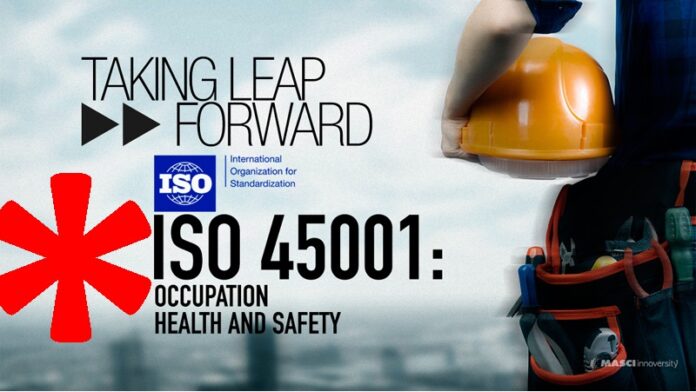
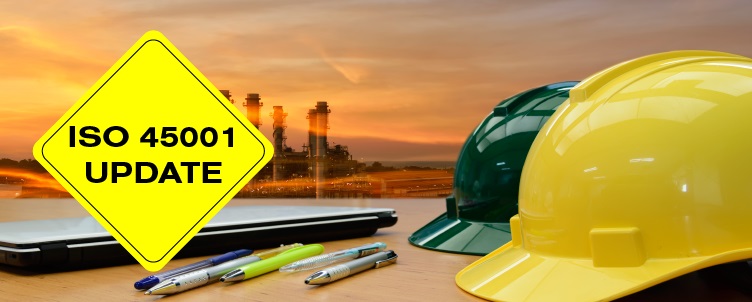 (www.MaritimeCyprus.com) When published on 15 March 2018 it was the first truly Global standard for occupational health and safety management system. It will replace OHSAS 18001 which is currently used by over 100,000 organisations worldwide. This International Standard specifies requirements for an occupational health and safety management system, (note ISO will not develop guidance for its use), to enable an organisation to proactively improve its OH&S performance in preventing injury and ill-health. ISO 45001 is designed to be flexible and applicable to an organisation of any size. It is an integrated management standard, thus compatible with ISO 9001, 14001 and 27001 etc.
(www.MaritimeCyprus.com) When published on 15 March 2018 it was the first truly Global standard for occupational health and safety management system. It will replace OHSAS 18001 which is currently used by over 100,000 organisations worldwide. This International Standard specifies requirements for an occupational health and safety management system, (note ISO will not develop guidance for its use), to enable an organisation to proactively improve its OH&S performance in preventing injury and ill-health. ISO 45001 is designed to be flexible and applicable to an organisation of any size. It is an integrated management standard, thus compatible with ISO 9001, 14001 and 27001 etc.
Over 6300 people die each day from work-related accidents or diseases - that’s nearly 2.5 million every year. this statistics relates also to Maritime activities.
The burden of occupational injuries and diseases is significant, both for employers and the wider economy, resulting in losses from early retirements, staff absences and rising insurance premiums.
To combat the problem, ISO is developing a new standard, ISO 45001, Occupational health and safety management systems - Requirements, that will help organizations reduce this burden by providing a framework to improve employee safety, reduce workplace risks and create better, safer working conditions, all over the world.
The standard is currently being developed by a committee of occupational health and safety experts, and will follow other generic management system approaches such as ISO 14001 and ISO 9001, all based on Annex SL. It will take into account other International Standards in this area, such as OHSAS 18001, the International Labour Organization's ILO-OSH Guidelines, various national standards and the ILO's international labour standards and conventions, (statement courtesy of ISO).
Impact:
The intended outcome of the implementation of the 45001 Standard is to improve the safety, health and well being of the workforce and to provide for a safe place of work both for the workforce and other interested parties.
ISO 45001 aligns health and safety in a form which integrates with other management systems which are in operation in over 1 million organisations. This convergence could provide for significant cost savings through improved health and safety performance, the elimination of waste and duplication through standardisation and cooperation between departments.
As a 45001 compliant organisation the commercial advantages will be that it will provide a passport through other barriers to trade. As a truly global standard that enforces compliance on supply chains, certification guarantees international acceptance within all sectors of commerce. Reputational advantages and benchmarking competitiveness flow from this. This Integrated Management System (IMS) will bring together the top management team with a common purpose and ease the way to achieve other IMS such as Quality 9001, Environment 14001 or Security 27001.
Other organisations may feel the side effects of the new standard. Clients or customers may require compliance to 45001, either as part of their existing supply chain or to tender for new contracts.
To understand if 45001 is appropriate for your organisation you must evaluate the role of your business in its context and its potential for growth and trade. Those already compliant with OHSAS 18001 may wish to make the transition to 45001, as 18001 certification will stop in March 2021.
Therefore there are both ethical, moral and commercial incentives to becoming 45001 compliant and making improvements in your occupational health and safety performance.
Watch: ISO 45001 Migration Webinar
Click below image to download below guidance papers:
Source: ISO





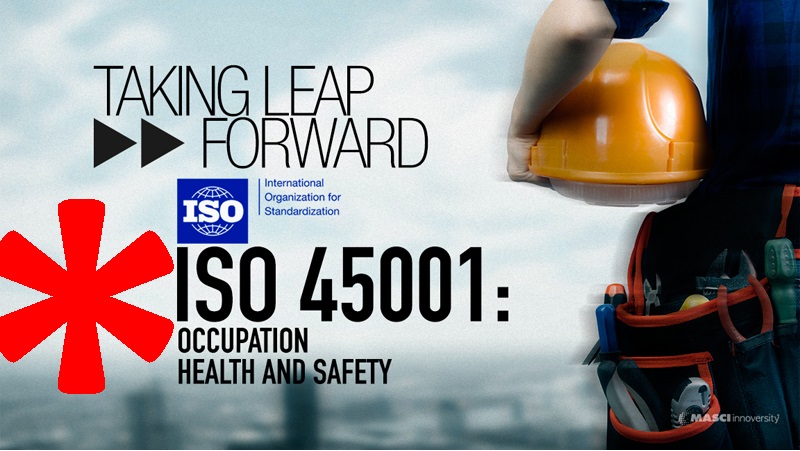

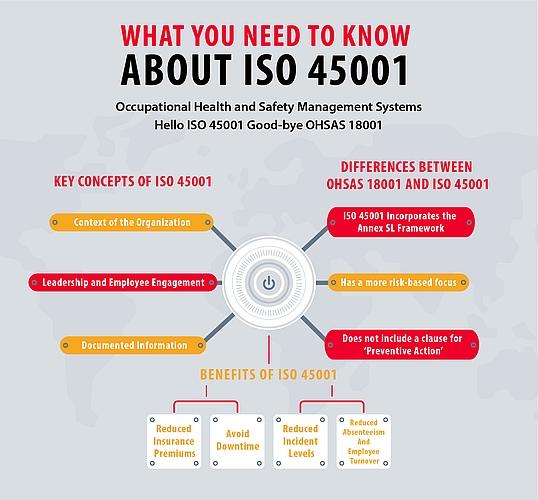
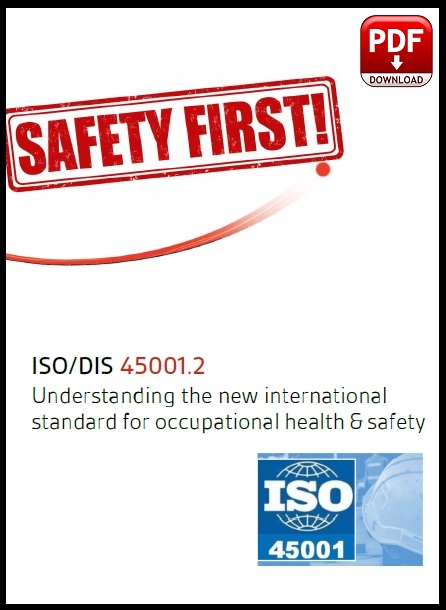
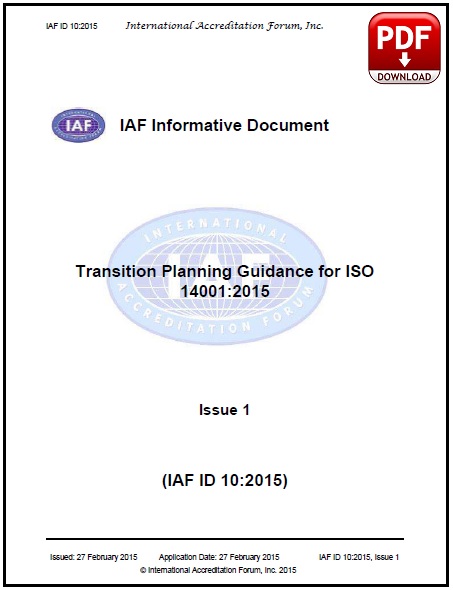
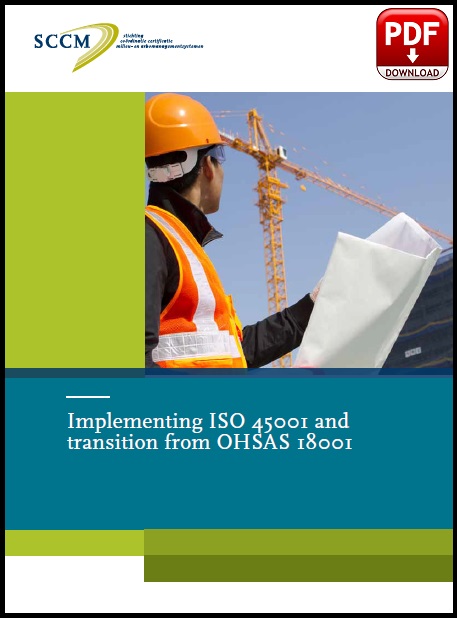









Reblogged this on Brittius.